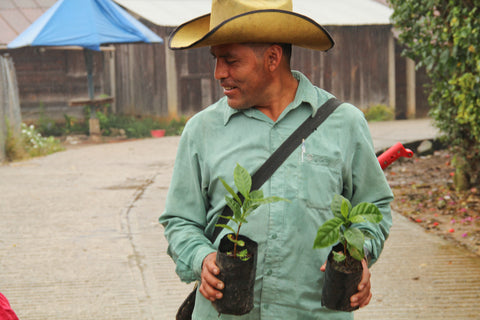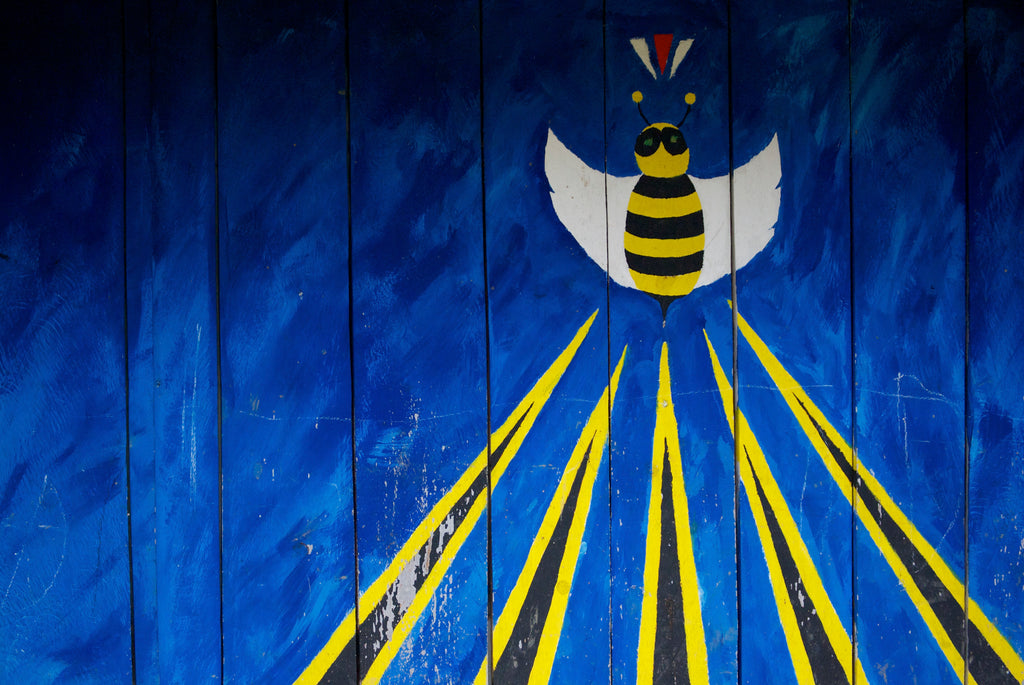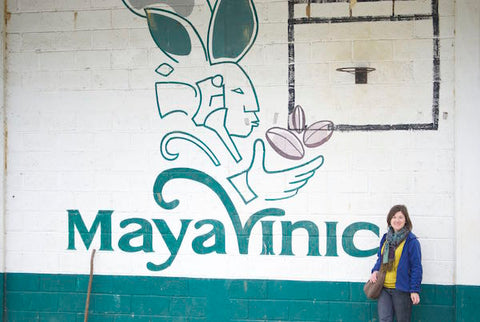This post is from HG director of coffee Jennifer Yeatts and was originally published in February 2016.
When I started working at Higher Grounds in 2011, I quickly learned that there was much more to the organization than simply coffee. In my orientation, I was introduced to the history behind the company, starting with HG owner Chris’ personal experience living and working with the coffee farmers of Maya Vinic in Chiapas, Mexico. A nine-month post-graduate internship studying the commercialization of coffee immersed Chris in the realities of life for small-scale coffee farmers in that region and also forged deep bonds between him and those farmers. One particular farmer whose name comes up over and over again in Chris’ stories recounting his motivation for starting a coffee company, in tandem with a nonprofit organization, is Jose Perez Vazquez.

Above: Jose plants coffee saplings in Chiapas.
Jose was the president of the Maya Vinic cooperative for ten years. He also was one of the founders of Las Abejas Civil Society (“the bees”), a pacifist organization that has been working toward peace in Chiapas for over twenty years. Jose and Chris formed a close friendship during Chris’ time in Chiapas, and it’s not a stretch to say that without Jose, Higher Grounds would very likely not exist.
 Above: a mural representing Las Abejas in Acteal, Mexico
Above: a mural representing Las Abejas in Acteal, Mexico
But let’s pause for a moment to talk about that phrase I just used, “peace in Chiapas.” Before coming to Higher Grounds, if you would have asked me about Mexico’s political or social state, I would have had very little to say. I knew next to nothing about Mexico other than that it was very poor. I had been just south of the U.S. border into Mexico for a mission trip in high school; I had seen a smidgen of the poverty in rural areas. But that was about it.
I didn’t know that most Mexican coffee is produced in the southern state of Chiapas. I had never heard anything about the Zapatistas. I didn’t know about the Acteal massacre. I had no clue about the vast human rights abuses taking place generation after generation. So I was ignorant of the fact that peace had long been an elusive state for the people of Chiapas.
As my job here evolved and I became increasingly knowledgeable about Higher Grounds and coffee in general, I also learned more and more about the dark and complicated history of Chiapas. Because I’m a writer, I was charged with writing blogs and blurbs about Higher Grounds’ mission and values, which are intricately entwined with that history. And so I “met” Jose—one of the pillars of our story. I captioned photos of Jose and his family; I edited Chris’ narratives detailing his trips to visit Maya Vinic. I gave tours of Higher Grounds, sharing the story of our Chiapas connection with our customers. I even had the privilege to visit Chiapas myself last year, but unfortunately I did not get to meet him there. Nonetheless, I have felt for a long time now that I know Jose, even though I’d never met him in person.

Above: Jennifer at the Maya Vinic bodega (warehouse) in Chiapas.
It’s essential to us that our friendship with Jose is as beneficial to him as it has been to us. His work as a coffee producer, community organizer and activist have not only shaped our identity as a company but also motivate our continued growth. It is for Jose and all those he represents that we strive to share our circular model of business with the larger specialty coffee community, pushing our colleagues and competitors alike to engage more deeply with the issues at the core of coffee-producing communities. When we invest in the resilience of the people at our product’s origin, we are investing not only in the quality of that product but in the quality of life for our friends. That sounds like a worthwhile undertaking to me.





